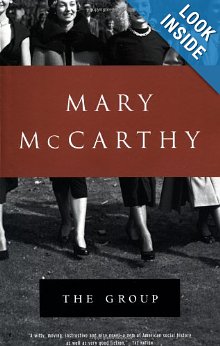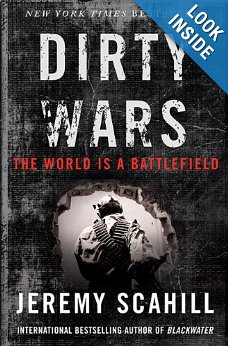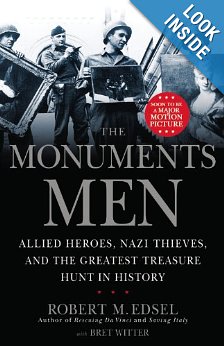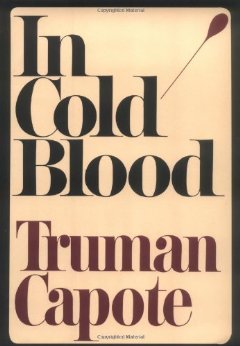Beach summary: A family massacred! The killers are on the loose and a farm town is in a panic. Only the master sleuthing of local law enforcement, aided by a pint sized homosexual from out of town, can bring the killers to justice.
Why it's good for the beach: A page-turner like no other this bestseller pulls off the hat trick of keeping you guessing even though you know that the action is all leading up to the grisly murder that gives the book its title.
Why it's good for you: If you missed In Cold Blood in high school or college there's no time like beach time to catch up. Almost every true crime book to follow was influenced by Capote's blend of nonfiction told through the techniques of a novel. Isn't it time you read the original?

The Group by Mary McCarthy
What: Author and respected literary critic Mary McCarthy set out to tell the story of a group of Vassar classmates as they confronted the changes in themselves and their country through the Great Depression, WWII and the postwar baby boom. As new doors open for the women of the group the men in their lives fear just what their wives and daughters will become. In some cases, they do whatever they can to stifle the women's new found voices.
Read if: you like gossip, backstabbing, cheating and all those other amenities female friendship provides.
Beach summary: Before the confessions of the Gossip Girl or anyone was having Sex in the City, Mary McCarthy's women of The Group were tearing through New York exploring sex, booze, marriages of convenience, lesbianism, contraception and everything else we take for granted on a Saturday night.
Why it's good for the beach: McCarthy's gift for truth telling about what really goes on between women friends (not just the good but the bad and the ugly) is the centerpiece of the story and remains as timeless today as when it was first published.
Why it's good for you: The Group was published in 1963 mere minutes before second wave feminism tackled issues of social, sexual and economic equality for women and it anticipated the rising movement with its frank discussions of women's lives and priorities. The Group is as much a document of social history as it is literature. It's a reminder of how far we've come as a society in the enfranchisement of women socially and politically and how far we still need to go.

Dirty Wars by Jeremey Scahill
What: Jeremy Scahill's new exposé (a companion to his 2013 documentary of the same name) takes an inside look at the secret wars the United States is waging abroad using drones, faulty intelligence and the ultra secret JSOC (Joint Special Operations Command) force all in the name of "security."
Read if: you like spy capers and are suspicious of what exactly the U.S. is doing in the Middle East these days.
Beach summary: An Afghani wedding ends in a bloodbath, a secret military unit that operates without congressional oversight, a journalist in prison for exposing U.S. bombings in Yemen and the one man who is willing to expose it all.
Why it's good for the beach: Even though the book is filled with political histories of the Middle East and multi-syllabic names of villages you can't pronounce it's an extraordinarily accessible read on an often inaccessible topic. Also, there's lots of warlords chewing drugs and telling good stories.
Why it's good for you: See above. Also, for anyone who needs a tutorial on what the U.S.'s real foreign policy is this is the perfect study guide.

Myra Breckinridge by Gore Vidal
What: Gore Vidal's sexual revolution shocker that combines old Hollywood kitsch with 1960s liberation.
Read if: you like surprises, you love Gore Vidal, you can't get enough polemics on the Golden Age of Movies.
Beach summary: Myra is a lady with a plan: to subjugate men the way they've subjugated women for thousands of years and she'll do it with glee! She's also a "lady" with a secret... But shhhhhh we're not telling.
Why it's good for the beach: Myra's chapter long rants about film, sex, masculinity, the power of women, classic movie musicals, westerns and her views of youth culture are laugh out loud funny. Even the notorious "appendage" chapter is written as a comic romp instead of a scene from a horror film (as it would have played had Norman Mailer written it).
Why it's good for you: Anything written by Gore Vidal can only improve your brain but Myra in particular challenges readers to see the underside of mass produced, homogenized American culture and the kinds of citizens it produces. Also, what's more fun that reading jokes about feminism by a gay man? I like to think he's laughing WITH feminists but you can be the judge.

The Monuments Men by Robert Edsel
What: The chronicle of the brave men and women who fought to keep the great cultural and artistic treasures of Europe from falling into the hands of Nazi invaders and being lost to time forever. The fates of the priceless artifacts that tell the story of Western Civilization were almost an afterthought.
Read if: you like Indiana Jones and want to know more about the real treasure hunting Nazi fighters, you thought art history needed more suspense, you want to get ready for the George Clooney film adaptation coming this Thanksgiving.
Beach summary: A train loaded with stolen loot stalled on its way to Nazi Berlin, a hardened Louvre official determined to save her country's greatest works of art, advancing American armies and Nazis angrily facing defeat. Can the world's treasures be recovered before they're lost to war?
Why it's good for the beach: With Nazi officials, black market thieves, smugglers, spies and collaborators around every corner you're gasping with excitement as you await the final outcome of masterpieces by Raphael, da Vinci, Monet, and other greats.
Why it's good for you: It's a WWII and art history lesson all in one!

Holy Anorexia by Rudolph M. Bell
What: The lives and eating disorders of the saints (and other holy persons) exposed, no, celebrated in all its weird, malnourished glory. From fasting to eating the tumors of the poor there's an eating disorder for everyone whether they be sinner, saint or some only-in-Catholicism combination of both.
Read if: you like weirdness, you enjoy Catholic history as not reported in parochial school, other diet books have let you down.
Beach summary: Want the sunken eyes and hollow cheeks of Saint Theresa? Want the rock hard abs of Saint Sebastian (pre-death by archery squad)? Look no further! The pounds will shed like a martyr's tears!
Why it's good for the beach: Even if you won't admit it, we all love to read about crazy diets, especially when we're not the ones on them.
Why it's good for you: No book this summer will give you better small talk subject matter than this one. Example: "speaking of cancer, did you know Saint Catherine used to chew the sores off cancer patients and then offer them to God? One hopes she didn't do this with her mouth full."







